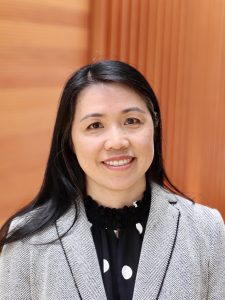
Professor
BSc and PhD (California, USA)
Office: KAIS 3064
Phone: (604) 827-4114
Email: kcheung@ece.ubc.ca
Karen C. Cheung is a Bioengineering Professor in the Department of Electrical and Computer Engineering at UBC. Cheung received her BSc and PhD degrees in Bioengineering from the University of California, Berkeley, in 1998 and 2002, respectively. From 2002–2005, she was a postdoctoral researcher at the Ecole Polytechnique Fédérale de Lausanne, Switzerland. Her research interests include lab-on-a-chip systems for cell culture and characterization, inkjet printing for tissue engineering, and implantable neural interfaces.
Research Interests
Biomedical microsystems for diagnostic and therapeutic applications, dielectric spectroscopy for flow cytometry, implantable polymer-based microelectrode arrays, integrated cell culture systems.
Research Areas
Research Groups
Teaching
- ELEC 361 – Molecules to Mechanisms
- ELEC 464 – Nanotechnology and Nature
- EECE 301 – Topics in Nanotechnology and Microsystems
- ELEC 473 – Biological Micro-Electro-Mechanical Systems
- ELEC 521 – Biomedical Microdevices